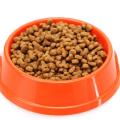Table of Contents
When it comes to tell – tale signs, doctors recommend to slowly and gradually introduce solid foods to a baby when is around 4 to 6 months old. This of course, depends on the child’s readiness and nutritional needs.
Tell-Tale Signs They’re Ready for Solid Food
Here are some tell – tale signs you should to look for:
- Tongue-thrust reflex diminished. This reflex is what keeps babies from choking; it also works by pushing food out of their mouths.
- Supports/lifts his own head. To eat solid, your baby must be able to lift, support and control his own head. He should also be able to sit up straight.
- He’s interested in food. Most babies are curious about food and their taste when they reach 6-month old. They usually stare and grab at any good with arm’s reach. If this is the case, then they surely need some variety of food.
If your child’s pediatrician gives you a go signal because of the tell – tale signs to introduce your baby with solid, but your baby seems uninterested with his solid meal, then don’t fret, as this is completely normal. Also, at this point of their life, solids are only complement food for their breast milk or formula milk. You can wait for a couple more weeks before trying again.
What Should Your Baby Eat?
4 – 6 Months, Cereals (Single-Grain)
At around four months, their iron level stored in their body slowly drop compared to while they’re still in utero, and it will hit its lowest level by the time they reach 9 months. This is why they need more iron from iron-fortified food such as single-grain cereals. Start introducing solid by mixing a teaspoon of single-grain cereal and around 5 teaspoons of milk (breast or formula). Allow your baby to get used to the texture and learn how to swallow soft cereal. Thicken his food by putting more cereal after a couple of days or so.
5 – 8 Months, Pureed Vegetables, Fruits and even Meat
Some pediatricians may recommend fruits and veggies for babies when they reach around five months. However, introducing sweet fruits over vegetables may cause some babies to develop life-long fondness for sweet food. There is however, no research conducted to back this claim. Thus, it’s still up to the parent, to start with either carrots or bananas.
9 – 12 Months, Chopped, Mashed or Ground Foods
By 9 months, most babies are still not prepared to move, which means you may need to stick with pureed foods a bit longer. When they reach 10 months though, they may be ready for some mashed finger foods or finely chopped foods. You can start with graham crackers, or soft fruits and vegetables, or even ground meat. You can also give your child casseroles and soft rice at this stage.
Foods to Avoid
Citrus – Though we see citrusy fruits as rich in vitamin C, some babies are at risk for allergic reaction, leading them to develop diaper rash. Thus, make sure you check with your doctor.
Cow’s Milk – If possible always stick with milk (breast or formula). Both milks are richer in iron than cow’s milk.
Honey – Honey may cause botulism for babies, which is a serious illness when introduced at a very young age.
Dried Cranberries, Nuts, Popcorns, Globs of Peanut Butter – or any choking hazards.






 NRB Publishing is a small publishing house dedicated to releasing quality informational books to interested readers.
NRB Publishing is a small publishing house dedicated to releasing quality informational books to interested readers.